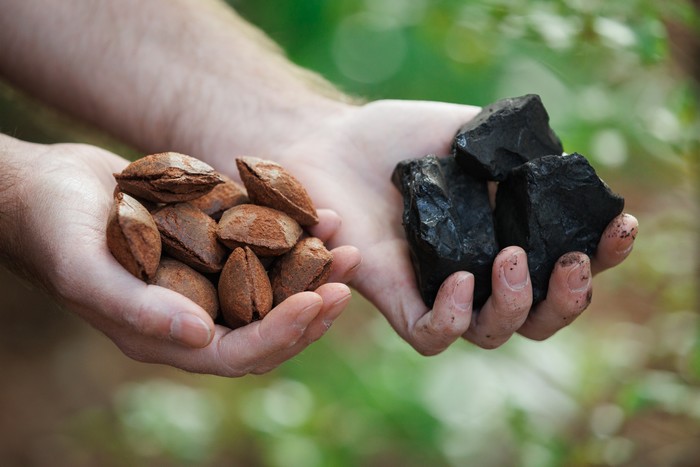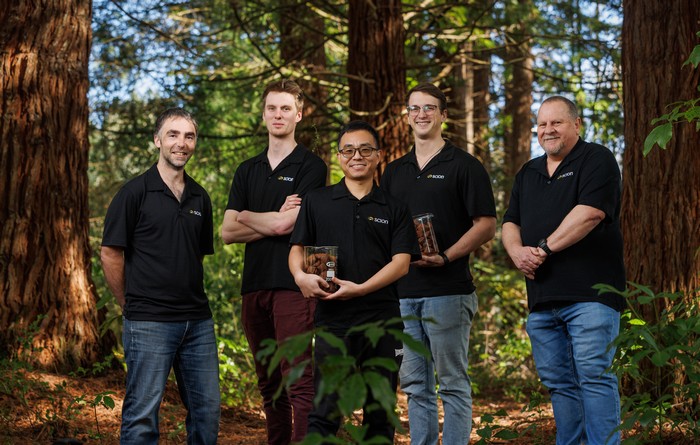MOTAT steam tram powered by trees
For immediate release
10 August 2023
It’s out with the coal and in with the biofuel for steam tram no. 100, which will operate on a renewable energy source made from trees at MOTAT Live Day on 20 August 2023.
Developed by Crown Research Institute, Scion, the biofuel will undergo its largest trial to date, which will see 250 kilograms of briquettes supplied to MOTAT to keep the little tram that could, running all day.
The briquettes are made using forest residues such as bark, branches, and low-quality stem wood – all woody biomass that is currently seen as a waste product in the industry. Scion is on a mission to unlock the potential of this ‘waste’, seeing massive opportunities in the estimated four million tonnes of harvest and thinning residues that currently remain in production forests.
While over two million tonnes of coal were burned in New Zealand in 2022, there has never been a more critical time to find an alternative to fossil fuels. Scion believes forestry may hold the solution for providing coal burners with a clean and renewable energy source.

Scion Integrated Bioenergy portfolio lead Paul Bennett says a biofuel future is essential for New Zealand to meet its global climate change commitments.
“Energy use contributes to around 90 per cent of New Zealand’s carbon dioxide emissions. If Aotearoa is going to achieve its net zero target, it needs to address emissions from energy use.
“This is currently the most achievable target for New Zealand to reduce carbon emissions. However, it’s not a target that can be achieved only by Scion. It requires connections with the industry and the public.
“To bring biofuel to the market and successfully replace coal, the technology needs to be tested at a range of scales. This partnership with MOTAT is the ideal first step to demonstrate the effectiveness of biomass briquettes at a larger scale, with a like-minded company that wants to reduce its environmental impact,” Bennett says.
MOTAT Collection Workshops Manager Graham Anderson says the museum is committed to reducing its carbon footprint and the trial is another step in the journey toward becoming carbon neutral.
“However, we acknowledge the challenges to this objective when it comes to operating many of our heritage collection objects that require burning coal, such as the Pumphouse and Beam Engine, steam trains and steam tram. It’s a balancing act between sharing with our visitors how these magnificent examples of science and technology work, while keeping carbon emissions to a minimum.”
“Steam tram no. 100 has a fascinating history,” says Anderson.

Built in the United States in 1891, it was shipped to Sydney where it operated on the New South Wales Government Tramway system until 1905 when electric trams replaced steam services. It was briefly used by the private Saywells Tramway at Rockdale and then brought to Whanganui, New Zealand in 1910 for construction of the Gonville and Castlecliff Tramway Board's electric tramway extensions to the Wanganui system. This work was completed in 1912 and the tram was then placed in storage. It was briefly pressed into service hauling passengers between July and October 1920 when the electric tramway power supply failed. It was restored to operational condition by MOTAT in 1971, and today runs on MOTAT’s tramway from Great North Road to Motions Road.
Although MOTAT has a licence to burn coal and complies with all legislation, it is investigating options for more sustainable, clean, or cleaner, fuel alternatives. The collaboration with Scion is an opportunity to further this research.
“Working with like-minded organisations, such as Scion, allows us to learn and share knowledge and brings MOTAT closer to achieving our own sustainability goals and supports innovation and research occurring elsewhere in Aotearoa,” Anderson says.
Scion scientists have been developing the biofuel since the early 2000s, but recently accelerated their pace of progress with significant breakthroughs in the past 12 months.
Scion scientist Dr Bing Song says the success to date is a culmination of more than 20 years' work.
“The project team are experts in this field. While the machinery is not new and the concept of continuous briquetting has been around for decades, the magic is really in the method. Our deep knowledge and understanding allow us to see results not yet recorded in scientific journals.
“We have been excited to be seeing positive developments of the biofuel in the past 12 months. And with further engineering innovations in the pipeline, we’re feeling confident about the future of this project.”
To produce a briquette, forest residues are first dried, and their size reduced to fine particles smaller than three millimetres. These particles are then heated to approximately 100 degrees Celsius and pressed into briquettes.
For a true coal replacement, forest residues must be densified and upgraded to a heating value comparable with coal. The resulting briquettes must also be durable, meaning they can hold their shape and not break or crumble during transportation and handling.
Thermal coal’s average bulk density is approximately 700 to 800 kilograms per cubic meter. To date, Scion has achieved a density of around 550 kilograms per cubic meter with a durability greater than 91 per cent, qualifying the briquettes as a coal replacement for medium/low process heat supply.
“While there are biofuel pellets on the market internationally, the geometry of these mean they sometimes cannot meet the requirements of all existing coal users/boilers. They are typically too small and will fall straight through the ash grate at the bottom of the boiler. Scion’s briquettes overcome this limitation and we will continue to experiment to determine the best shape,” Dr Song says.
He adds that his door is open for individuals and organisations interested in bringing the solid biofuel to market.
“If it’s a question, some consultation or even a collaborative event, please reach out to Scion. I am positive and ambitious to say that we can phase out our use of coal as a country, but only by working together.”
ENDS
MOTAT Live Day: Travel by Tram event details:
Date: Sunday 20 August 2023
Time: 10am – 4pm
Tickets: Included in MOTAT general admission
More information: https://www.motat.nz/events/live-day-travel-by-tram

